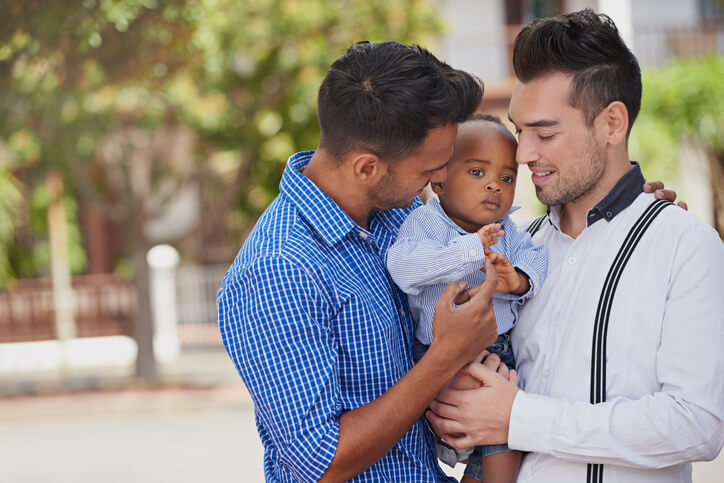
If you’re like many adoptive families today, you may be considering a transracial adoption in Iowa. As the United States becomes more multicultural and blended families become the new norm, adopting a child of a different race or culture is not as rare as it once was — and is a beautiful, celebrated way to grow a family.
However, just as there are unique challenges to adopting a child in general, there are more specific challenges associated with an interracial adoption. Before you commit to this process, it’s important that you understand these requirements and are ready to complete them to the fullest extent.
When you work with the Nelson Law Firm, PLLC, you can be reassured that the legal process of your transracial adoption in Iowa will be handled effectively and thoroughly. We’re always available to answer your questions if you call us at 319-291-6161.
To help you better understand what you’ll need for a transracial or biracial adoption process, we’ve laid out some of the requirements you’ll need to meet below:
1. Be Approved for a Transracial Adoption in Iowa
While the steps of the adoption process are generally no different for an interracial adoption, there are certain legal requirements you must meet to adopt a child of another race or culture. The legal process of adoption is much the same, no matter the race of your child, but you will need to be approved to adopt a child of a different race by the social worker who completes your home study. The requirements below and your adoption professional will help you prepare for the questions you’ll get in regards to a transracial adoption during your home visit.
In addition, if you are adopting a child of Native American descent, you may need to work through the requirements of the Indian Child Welfare Act. Likewise, if you’re adopting a child from another country, there will be certain U.S and international laws you will need to abide by.
2. Learn About Your Child’s Culture and Heritage
Some adoptive parents are open to only specific races while others are comfortable with any race or mixture of races. Either is completely fine, but it’s important that the races or ethnicities you’re comfortable having in an adopted child are something that you are willing to learn about, respect and honor before and after your child is born.
Once you are matched with a transracial adoption opportunity (whether through a prospective birth mother, foster care placement or international agency), you will need to do all you can to learn about your new child’s heritage and culture — before you even bring them home. Like their adoption, knowledge of their heritage should be a part of their life since before they can remember. If possible, you may want to speak to your child’s biological relatives to learn about what knowledge and which traditions are important to them and what they wish to be passed down to their child.
3. Learn About Your Child’s Unique Needs.
In addition to your child’s culture and heritage, you’ll need to be aware of any unique needs your child will have. Different races have different hair and skin textures, and what works for your own body may not work the same for theirs.
4. Be Prepared for Tough Questions and Conversations.
An interracial adoption in Iowa is a lifelong journey; you and your child will both learn what it means as you grow together in this kind of adoption. You must always be comfortable addressing questions and concerns from yourself and from your child, no matter how delicate or difficult they may seem.
Although you won’t see your child as anything else but a member of your family, other people will unfortunately see race before anything else. You may receive inappropriate questions (“Where did he come from?” “Why didn’t you adopt a white child?”), so it’s important to prepare answers that reflect your pride for and love of your child.
Your child will also receive questions and will experience the world in a different way than you do, simply because of their race. Rather than pretend it doesn’t exist, address racism with your child from when they’re young, so they know how to respond in these kinds of situations safely.
5. Be Prepared to Promote Diversity and Inclusivity in Your Own Life.
While interracial adoptions in Iowa are simply another way to create a family, they also come with an expectation — that you, as parents of a child of another race or culture, will surround yourself with diversity and be prepared to educate others about your child’s culture. It’s important that your child grows up with peers and role models of their own race, but it’s equally important to surround them with people of all cultures and ethnicities. By doing so, you’ll help your child (and the rest of your family and friends) understand the importance of equality and that similar appearance does not make a family — just love and acceptance of each other.
Transracial adoptions in Iowa are not always an easy process. If you choose to adopt a child of another race or culture, you will have to put in extra effort beyond that of a same-race adoption. However, parents who adopt transracially will tell you it’s all worth it — and a beautiful, inspiring way to create a family.
To learn more about interracial adoption in Iowa, talk to adoption professionals and other families who have adopted transracially, as well as look at transracial adoption blogs and forums. For any of your legal questions or to start the adoption process today, please contact the Nelson Law Firm here.